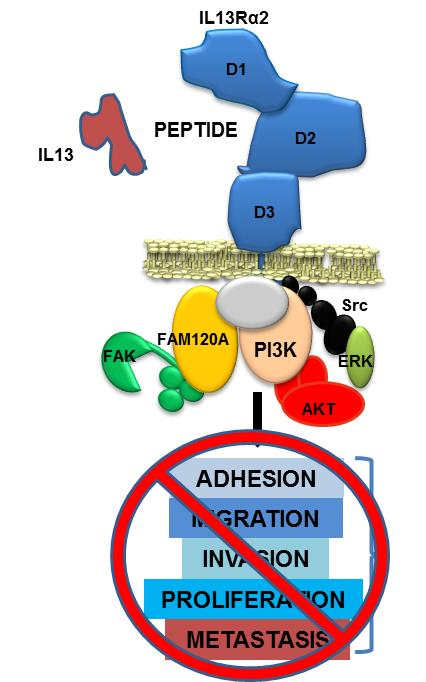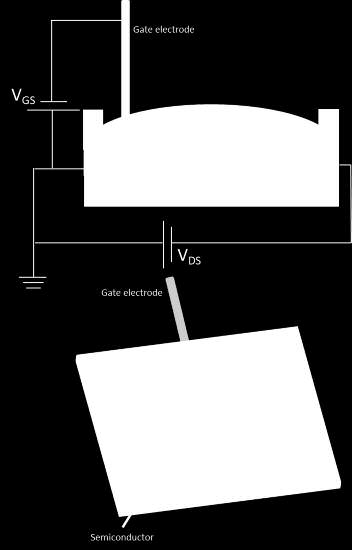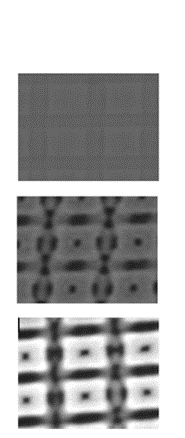Control of cancer
Recent studies have identified a pro-metastatic role for human interleukin 13 (IL-13) in colorectal cancer mediated through the interleukin 13 receptor α2 (IL13Rα2). The binding of IL-13 to IL13Rα2 triggers different cellular pathways to promote migration, invasion and survival of the metastatic cells. In addition, IL13Rα2 is overexpressed in a variety of human tumor types such as glioblastoma, renal cell carcinoma, pancreatic, melanoma, head and neck, mesothelioma and ovarian, where it has been proposed as biomarker and potential therapeutic target.
There is a need for improved strategies for treating tumors and other diseases where IL13Rα2 is expressed, like glioblastoma and metastatic colorectal cancer.
The authors have found a peptide that is capable of inhibiting IL13/IL13Rα2 signaling. They have also developed a fusion protein with the peptide and at least a heterologous polypeptide. Both can be introduced in a nanoparticle or virus-like particle to be included in a pharmaceutical composition to be used in cancer and metastasis control when IL13Rα2 is overexpressed.
Besides this composition can be applied to other pathologies related with IL13Rα2 such as asthma, atopic dermatitis or fibrosis.
Main innovations and advantages
· A new strategy for the treatment of cancer is presented related to IL13/ IL13Rα2 and the derived metastases.
· Peptides and derivative pharmaceutical compositions can be applied toother pathologies of high incidence.






